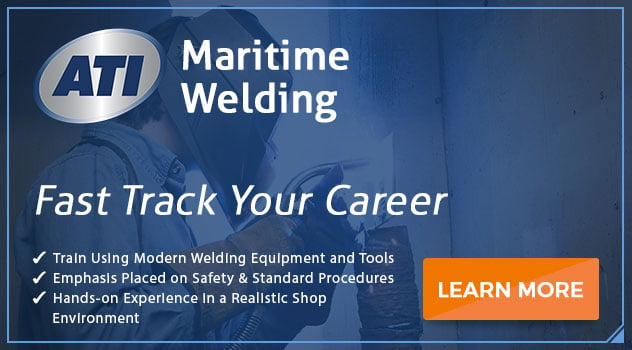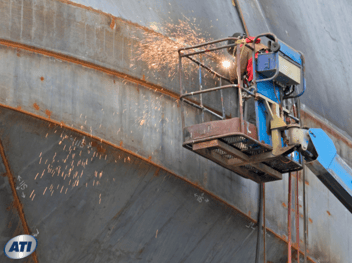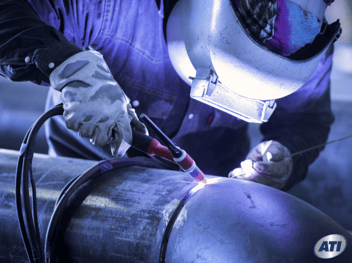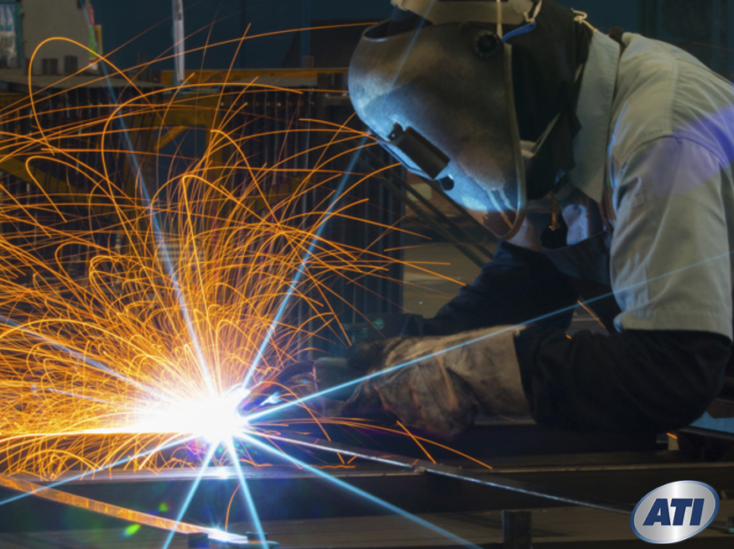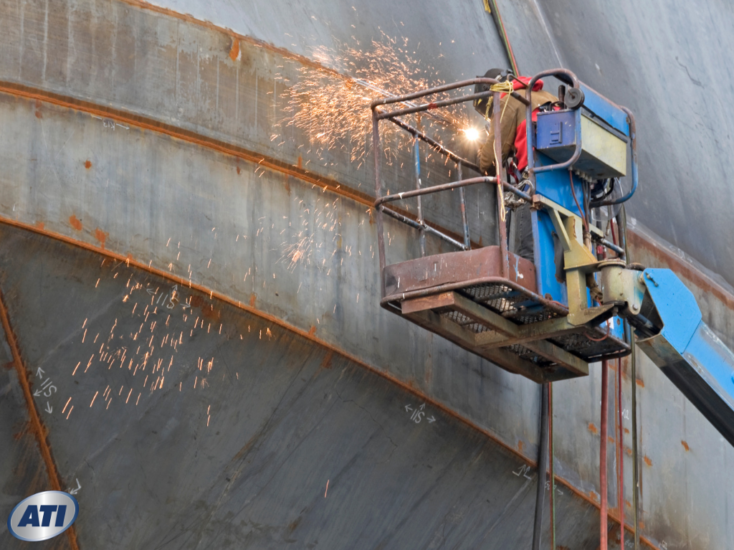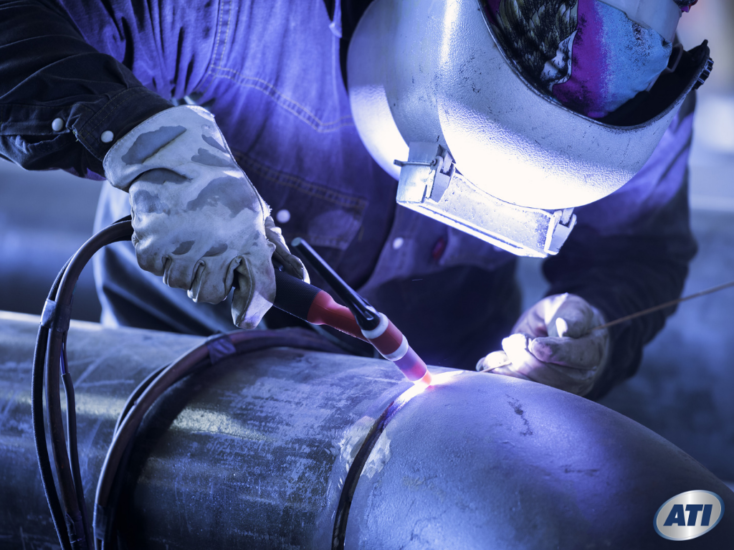Where Can I Go to School for Welding in Hampton Roads?
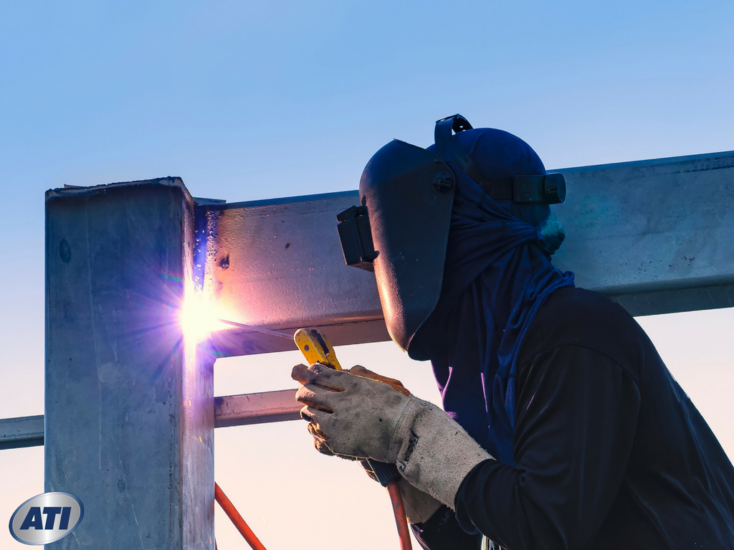
When it comes to learning a trade, welding is a job that attracts many people. Although you can obtain an entry-level welding position with just a high school diploma, it’s worth pursuing additional education in order to build your skills and experience, which could help you obtain more advanced and higher paying work.
Finding Work as a Welder
The Bureau of Labor Statistics predicts a solid job outlook for welders, especially since the country’s infrastructure is aging. This means welders will be needed to help build and repair buildings, highways and bridges. You’re also likely to find work as a welder in the Hampton Roads area. This is because Hampton Roads is known for being one of the biggest natural harbors in the world and just happens to have a large military presence in the form of numerous military bases and installations.
Because of the naval and coast guard presence as well as the other shipyards located in the area, there’s a constant need for welders, especially maritime welders. Hampton Roads also has infrastructure that needs continuous maintenance, including the Monitor-Merrimac Memorial Bridge-Tunnel and the Hamptons Roads Bridge-Tunnel (HRBT). Some of the locations at which you could obtain work as a welder include Colonna’s Shipyard, Shipyard Staffing and Prism Maritime, just to name a few examples.
Obtaining Formal Training in Welding
Technically speaking, going to school for formal training isn’t required. As long as you have a high school diploma or the equivalent of one, you should be able to find work as an apprentice. However, you should strongly consider obtaining formal training at a school instead. The following are just a few of the benefits of going to school for welding instead of just learning on the job:
- There aren’t many apprenticeship jobs available – While you could learn on the job, you’d have to find a company that would be willing to train someone who doesn’t know the first thing about welding. This can take a long time to do, especially since whoever will be in charge of training you will also have work of their own that they will be responsible for. Welding jobs are often time-sensitive as well. Companies that need a job done quickly will want to hire welders who can do the job right away and won’t have time to deal with anyone making beginner’s mistakes.
- Formal training looks good on your resume – Even if you’ve managed to get training while on the job, you’re more likely to lose out to welders who have been trained at a trade school. Employers will know that if you’ve received formal training, then you know everything you need to know to perform the job properly and safely. People who learn on the job don’t always learn everything they need to know and may have learned improper techniques depending on who taught them.
- Formal training opens up more career opportunities – While learning on the job will certainly provide you with real-world experience, this kind of experience will only get you so far. People with experience and degrees are much more likely to obtain higher-paying work. Additionally, there are certain career paths that open up to you if you have a degree. This can be very beneficial if you decide you want to move away from the physical labor required to weld once you grow older. Some of these positions include welding inspectors, project managers, engineers, and possibly even as the owner of your own welding business.
What Will I Learn in Welding School?
A good welding program will provide its students with core training in all of the practical aspects of construction, including steel equipment and structural repairs. You will learn how to properly and safely use welding equipment and tools to weld pipes in various positions, giving you the knowledge and experience that’s required to obtain an entry-level position as a combination structural and pipe welder.
Additionally, such programs will also teach students about business management, employee relations, inventory management, customer service and more, none of which are typically taught during an apprenticeship.
If you’re interested in earning an Associate of Occupational Science degree in Maritime Welding, ATI offers this course as well as several welding certificates. For more information about how to become part of this great program, connect with ATI today!
Industry Knowledge
Welcome to the Advanced Technology Institute's Blog, your resource for industry insights and discussions on technologies shaping the future of automotive, heavy vehicle, hvac, welding, and other related career paths.
Explore how ATI's curriculum and hands-on learning opportunities can propel your career in the tech-driven world.
